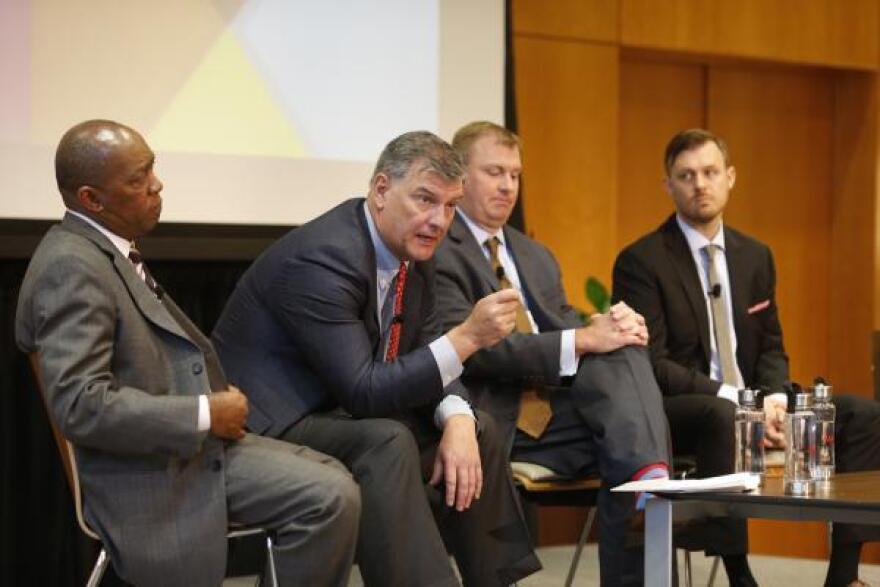Toyota chose to move its national headquarters to Plano over Dallas in part because of the state of the Dallas ISD, Mayor Mike Rawlings said Tuesday on KERA.
“The big elephant in the room is we don’t get Toyota in Dallas because of the school system,” Rawlings said. “We’ve talked to them and they want to be in Plano. And 7-Eleven left."
The mayor's comments came during an hour-long discussion of the pros and cons of the controversial home-rule school proposal on KERA's "Think" Tuesday afternoon. Rawlings and Dallas ISD school board member Bernadette Nutall discussed home-rule.
If you missed the conversation, here it is.
Rawlings continued: "We’ve got so many great things -- I tell all these people this -- but right now, 160,000 kids are being educated and only a very few percentage are making it in the real world. They’re not getting hired by our companies. When you talk about the big employers, I ask them what percentage of them are DISD graduates and it’s very very very small. There’s something wrong with that. We’ve got to compete against Singapore and Berlin and everybody and that’s why this is so important to me.”
Rawlings added: “The 7-Eleven CEO says 'I need to be where my families are sending their kids to school and they’re not sending them to DISD.'”
The Irving City Council has approved incentives to lure 7-Eleven out of downtown Dallas.
(Toyota announced Monday that the new Plano headquarters will bring together employees who are now scattered around the country. It will break ground on a new headquarters in North Texas this year.)
Rawlings acknowledged Toyota considered other factors like real estate prices and location. He worries other big companies Dallas needs will also stay away unless schools improve. He says home-rule could at least help.
But Nutall disagrees. She warned that home-rule could harm DISD, especially if it replaces elected board members with appointed ones. Nutall said minority voting rights have been hard-earned in Dallas.
“I think that voice is very important," she told KERA. "You hold me accountable. You talk about accountability -- you have the option to vote that trustee in or out. In three years, you can replace that person. It’s very important to me to have that voice, to vote."
Catch up on KERA's coverage of the home-rule proposal:
From Monday: Supporters Of Home-Rule Proposal Explain Why They Want To Reform Dallas Schools
From Tuesday: Dallas Home-Rule School Opponents Fear They'll Lose Representation And Rights
What is the home-rule proposal?
It would be a new way to run the school district, allowing it to avoid certain state rules. The Texas legislature approved home-rule charter districts 19 years ago. But no Texas district has ever passed it, perhaps because it takes a lot of signatures -- 5 percent of registered voters -- to get it on the ballot. After that, a quarter of registered voters must turn out when it’s on the ballot. A petition drive is underway. About 25,000 signatures need to be collected. If it's successful, DISD trustees would appoint a 15-member charter commission that would create a governance plan over which trustees would have no power or control.







